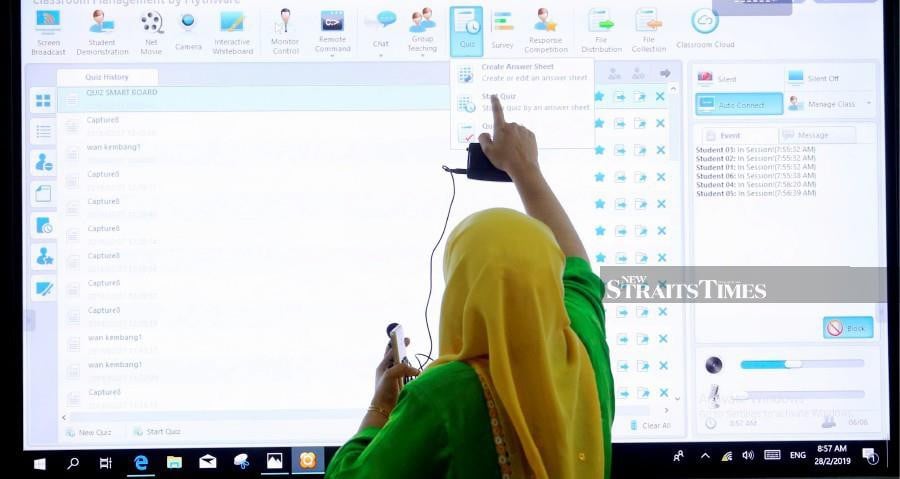 |
| Now is the time to motivate and not dispirit the teachers. It does not bode well for the education system if teachers feel unappreciated |
ENGLISH language teachers have been up in arms about the Education Ministry’s directive for them to sit the Malaysian University English Test (MUET).
The aim is to review the teachers’ English proficiency level in line with the Malaysia Education Blueprint 2013-2025 requirements for them to have at least C1 proficiency level, according to the Common European Framework of Reference for Languages (CEFR).
The National Union of the Teaching Profession’s (NUTP) contention is that MUET will not benefit anyone as English option teachers already have English language teaching qualifications such as Teaching English as a Second Language (TESL), while the non-option teachers will most likely fail to attain the set level.
The fact that the 20,000 non-option teachers had to be roped in to teach English shows that we have been facing a dearth of trained and qualified English teachers for quite a while.
If what NUTP said is true and most of the non-option teachers could not meet the set level of proficiency, the shortage that they helped cover will reappear. The difference is that non-option teachers will likely be less motivated to plug the gaps the next time around.
The elephant in the room is the shortage of English teachers. Shortlisting, or selection processes, are employed when the candidates number more than the available positions. Doing so when we have a shortage will only exacerbate the situation.
Perhaps, a training programme to enable the non-option teachers who want to continue teaching English attain the required proficiency would be more helpful.
MUET, as the name suggests, is a test to gauge English proficiency according to the set guidelines. It is not a training programme.
Sitting for MUET time and again will not improve one’s proficiency level. A bigger part of the equation is the students. If the wrangling over MUET is allowed to fester, ultimately the students will lose out.
The focus should be on enabling students to have a better command of English. Relabelling the goal post to MUET or CEFR-compliant will not help.
Another concern is the RM100 self-funding for MUET — many feel that it is better to skip MUET and quit teaching altogether.
Over a mere RM100? Is it not for the teacher’s own career advancement and common good? It is an investment for self-improvement, plain and simple.
There are other more important things at hand. NUTP may be right to highlight the rather “draconian” approach — a new policy is announced, but it is to be paid for by the teachers. Then again, nothing in life is free.
So, perhaps, a unilateral decision needs to be made so that others too will pay. Now is the time to motivate and not dispirit the teachers. It does not bode well for the education system if teachers feel unappreciated.
Language, English especially, is a big component of communications. For any endeavour to be successful, one has to communicate effectively. Being able to converse in a language that is not one’s mother’s tongue is a privilege, therefore, instead of quibbling over issues, it would do well for both the ministry and NUTP to come up with a compromise and open all communication channels between them.
After all, it is the future of our students and how well they communicate that is of utmost concern.
NST ONLINE

No comments:
Post a Comment